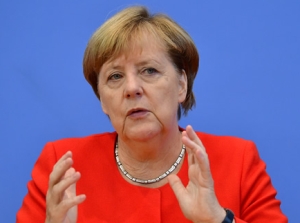EU – Baltic States, Legislation, Society, Transport
International Internet Magazine. Baltic States news & analytics
Friday, 26.04.2024, 17:44
Germany secures agreement from 14 countries for rapid migrant returns
 Print version
Print version |
|---|
The letter said that Merkel had secured agreements with 14 countries for the rapid return of asylum seekers trying to enter Germany who first registered in those countries.
Hungary, Poland and the Czech Republic - all countries extremely critical of Merkel's refugee policy thus far - were among the nations that had agreed to rapid return. The others were Belgium, France, Denmark, Estonia, Finland, Lithuania, Latvia, Luxembourg, the Netherlands, Portugal and Sweden.
The number of migrants arriving in Germany who are returned to where they first registered in the European Union currently stands at 15 percent. With the agreements revealed in Merkel's letter, this number should rise significantly.
Larger collection centres in Germany - so-called "anchor centres" - would be used to house migrants while their cases are investigated.
The anchor centres would be for migrants who attempt to bypass official border controls as well as those who don't fall under a border take-back mechanism bilaterally agreed upon between countries.
The rapid-return agreements in particular are meant to satisfy German Interior Minister Horst Seehofer, who is the leader of the Christian Social Union (CSU), the more conservative sister party of Merkel's Christian Democrats (CDU), the DPA news agency writes.
The Bavaria-based CSU, and Seehofer in particular, have been holding Merkel's feet to the fire on asylum policy, including threats to close Germany's southern border without Merkel's consent.
A broader EU asylum deal, reached after marathon negotiations between EU leaders in Brussels, foresees the creation of "controlled" processing centres, firstly in Europe, and then later in North Africa.








 «The Baltic Course» Is Sold and Stays in Business!
«The Baltic Course» Is Sold and Stays in Business!

